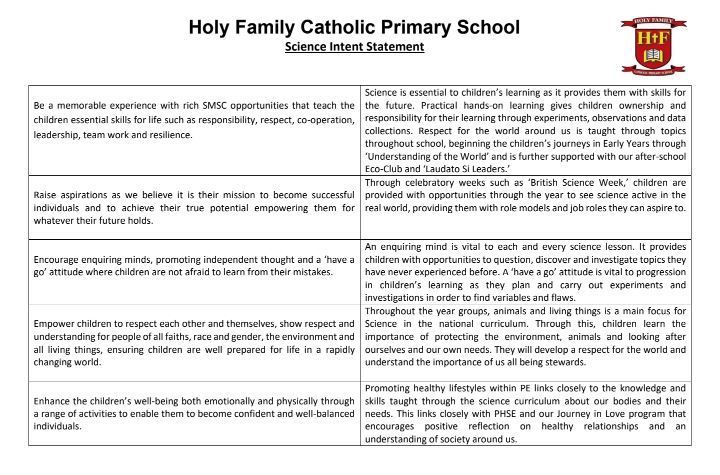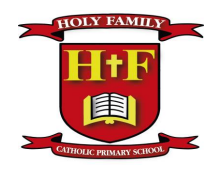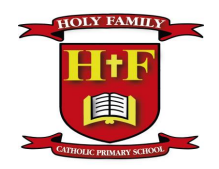SCIENCE CURRICULUM
Step into Science at Holy Family...
"Science knows no country, because knowledge belongs to humanity, and is the torch which illuminates the world."
–Louis Pasteur

What does Science look like at Holy Family?
At Holy Family, our aim in science education is to ignite a passion for scientific inquiry in children, preparing them to become the innovators of the future. We actively encourage them to question, investigate, discover, and draw conclusions, thereby enhancing their scientific understanding and skillset.
In the Early Years Foundation Stage (EYFS), children embark on a journey of exploration, nurturing their natural curiosity about the world around them. Topics will be linked to pertinent areas of the Understanding the World framework within Development Matters. They are motivated to engage in practical testing and experimentation, laying a solid foundation of knowledge that will serve them well in subsequent years.
In Key Stage 1 (KS1), children observe, explore and pose questions. They collaborate to gather evidence that aids them in answering their inquiries, connecting these findings to fundamental scientific concepts. Within the curriculum, they encounter five distinct types of scientific enquiry, learning to critically evaluate evidence while conducting comparative and fair tests. Their ability to express ideas is further enhanced as they employ scientific language, drawings, charts, and tables, utilising ICT where appropriate.
As they progress to Key Stage 2 (KS2), students build upon their existing knowledge of living things, materials, and physical phenomena. They begin to interconnect ideas and provide explanations using basic models and theories. They conduct increasingly systematic investigations, working independently and collaboratively while gaining further insight into various forms of scientific enquiry. Their scientific vocabulary is enriched through the use of oracy techniques.
Teachers meticulously plan lessons with a focus on skills progression and content knowledge. All learning begins with a review of prior knowledge to promote connections and ensure understanding, while formative assessment is employed continuously to address any misconceptions.
We strive to create opportunities for outdoor learning whenever possible. Additional enrichment activities include after-school science clubs and educational trips to venues such as 'Imagine That' Science Discovery Centre, Brockholes Nature Reserve, and Martin Mere. Furthermore, students partake in the annual British Science Week.


